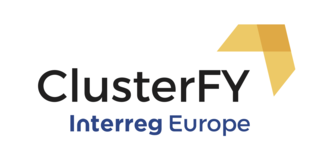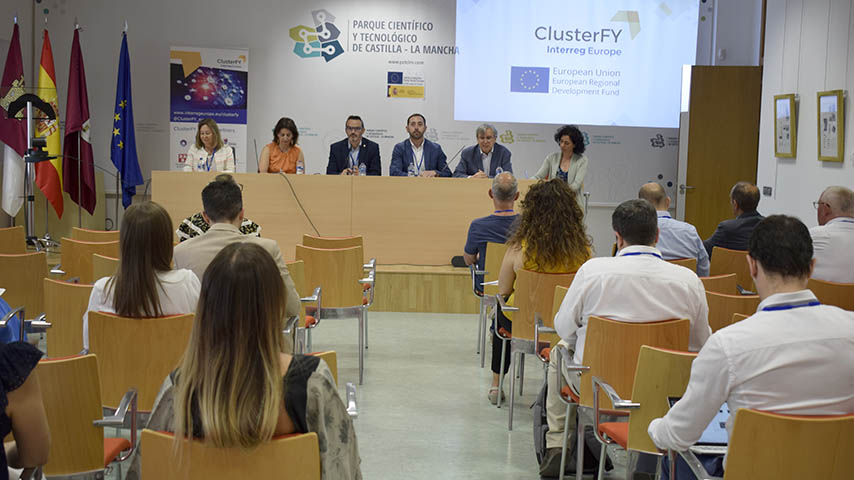In the Northern Netherlands a study was conducted, focused on the state of play of clusters and on how cluster management is organized in comparison with the EU cluster policy. The central question during this research was:
“ How is the cluster management of the Northern Netherlands organized in relation to EU cluster policy, ERDF programming and KET’s (Key Enabling Technologies)?’”
Summary of the results
Classis and non-classic clusters
It is important to make the notion of the different cluster types in the region. There is a distinction between ‘classic-’ and ‘non classic’ clusters. Classical cluster types are organized from a central point. Non classical cluster types are organized as a project and do not have a central core. The activities of these clusters are focused on collaborations in the sectors with partners. Both cluster types are equally important and ensure a big impact on the economy by making connections in the region. The theory on EU cluster policy focuses only on classical cluster types and is missing information on these new cluster networks.
There is a divergence in the region between the clusters
The first conclusion that was drawn, is that cluster management in the Northern Netherlands is divided. The division is evident in the fact that all clusters focus on its own strategy. The clusters have common meetings about the current state of affairs, but there are no concrete cooperation’s. The aim of each cluster is to strengthen the region in their own particular sector.
The European Cluster Excellence initiative
The ECEI is an important part of the European cluster policy. Looking at the results of the research, it can be concluded that two of the six cluster are labeled within this initiative. The opinions about the ECEI are divided, in most cases the initiative is seen as a form of profiling. The clusters do not perceive the initiative as huge added value.
The Fundamental Concepts of Excellence
Based on the Fundamental Concepts of Excellence, it can be concluded that a similar management style is used within the classical clusters. According to eight indicators, insight has been gained in the cluster management of the Northern Netherlands. The cluster management of the clusters is aimed at adding value to members by listening carefully to the needs and wishes. Based on the needs and wishes, the clusters make connections and cross overs in the region. The other indicators of the Fundamental Concepts of Excellence are scored differently. The eight indicators are clearly evident in all clusters, but different values re attached to the indicators.
Spearheads from EU cluster policy
When looking at the European spearheads of cluster policy, it can be established that they match the activities of cluster management in the Northern Netherlands. All clusters focus on implementing Smart Specializations and building on their own regional strengths. The other indicators of EU policy are reflected in varying degrees. It can be concluded that there is guidance within the spearheads of the EU but this guidance does not happen consciously. Clusters don't focus on the spearheads of the EU because there are direct financial flows form the EU policy. Indirectly there are money flows through participation in European projects and programs.
ERDF programming
The results indicate that ERDF programming needs to be improved for clusters. They see it is supportive but not supportive enough. The application and accountability of the subsidization is experienced as very complex and time consuming. As a result, it is less accessible and attractive for the clusters and SME’s to make use of the grant. The results indicate that the current ERDF programming as a strong lack of organization capacity.
Key Enabling Technologies (KET’s)
Finally, the research results suggest that the relationship between KET’s and cluster management in the Northern Netherlands is weak. The clusters work with the technologies but they are not aware of this, as the clusters do not specifically focus on the technologies. In the context of the image that the European Commission has drawn. This research also reveals that the activities around KET’s are fragmented in the region. There is no clear vision in the Northern Netherlands about the importance and implementation of KET’s.
In conclusion, it can be said that cluster management in the Northern Netherlands is divided. The clusters focus on their own strategy and do not actively work together. There are similarities between EU cluster policy and cluster management, however the clusters are not aware of this. ERDF programming is perceived as supportive but should be improved. Additionally, the relationship towards KET’s is seen as weak.
This article is a summary of a thesis made by Jorien van der Weerd, European Studies gruadate student. For more information please contact Lena de Jong at [email protected]










